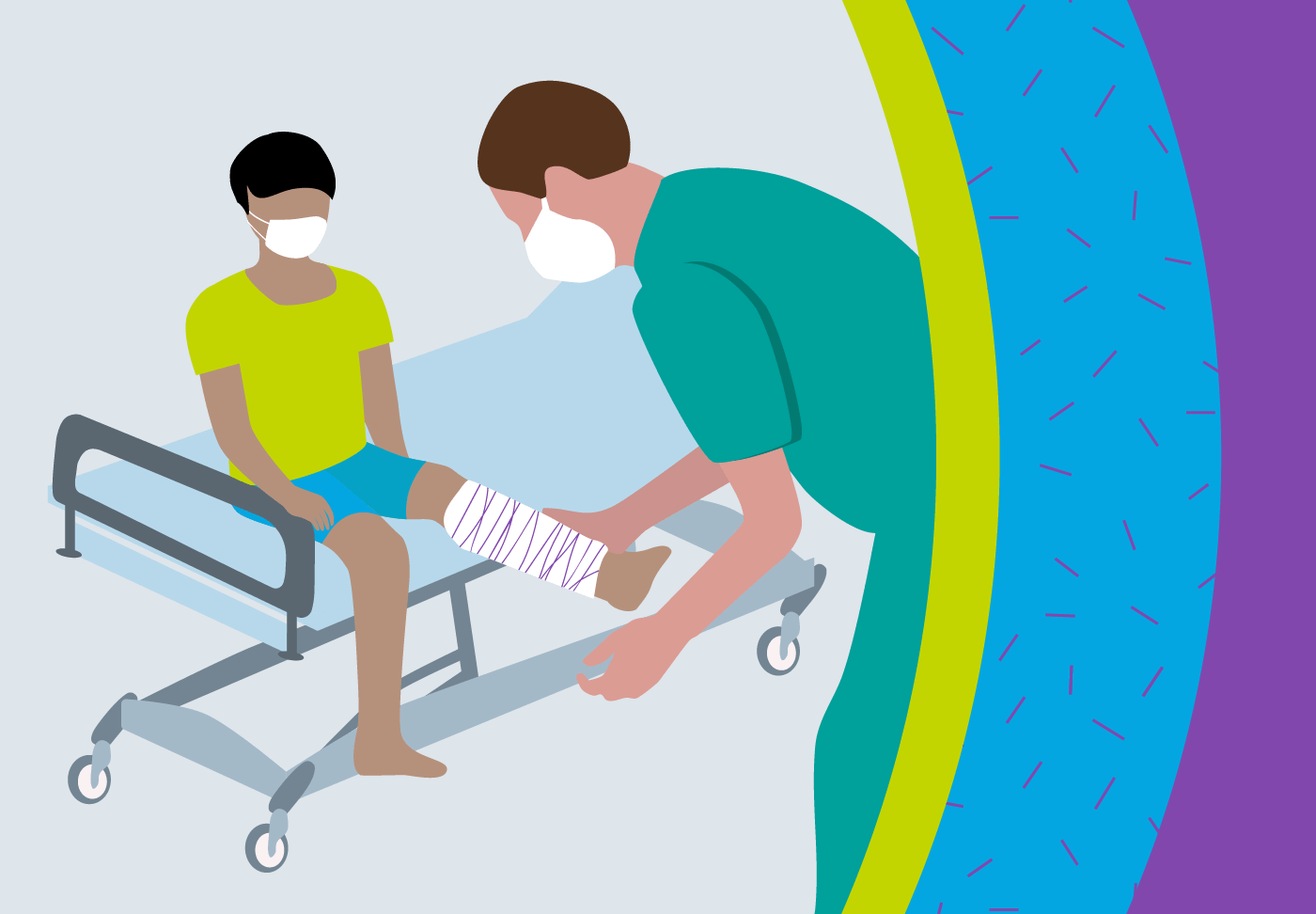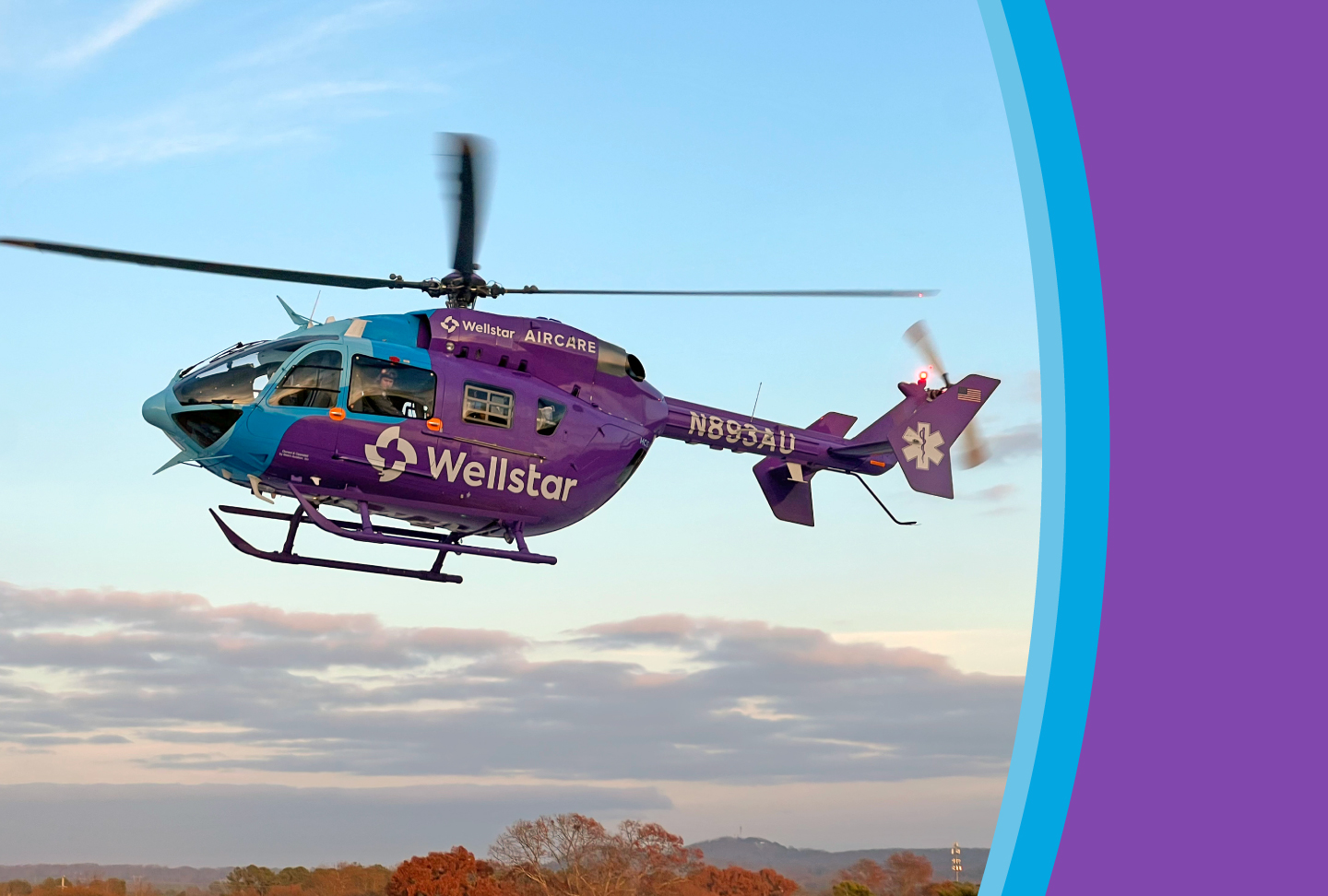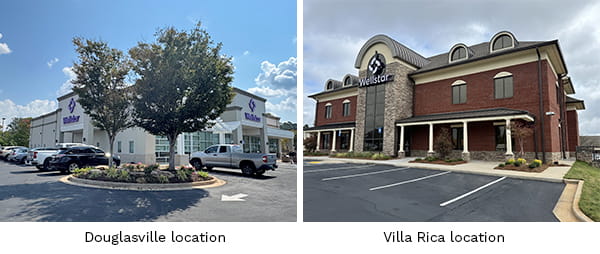When a kid experiences a sudden medical emergency, it can be a stressful experience for both the parents and the child.
With four dedicated pediatric emergency departments, Wellstar Health System helps families have peace of mind that their little ones are in expert hands. Find a location near you:
- Wellstar Cobb Hospital
- Wellstar Douglas Hospital
- Wellstar Kennestone Hospital
- Wellstar Paulding Hospital
Here, we know quick action, advanced services and compassionate care are essential to treating children like 12-year-old Alex. When he broke his leg during football practice, the injury could have caused lasting damage if he didn’t get the proper care.
“From the moment we arrived at the ED, the experience was absolutely phenomenal. He wasn’t treated like a number,” said Stephanie, Alex’s mother. “Knowing that the Wellstar team really cared about my son helped build my trust.”
Due to the severity of the break in Alex’s leg, surgery was a likely outcome.
“There was a 90% chance that my son would need surgery,” Stephanie explained. The odds seemed stacked against them.
However, the skilled pediatric team, led by Dr. Mark Brown, didn’t give up. They expertly set Alex’s break in a cast. Because it was done so well, he never required surgery to heal.
Now, months after the injury, Alex is on the mend and finishing up his last few physical therapy sessions. He will make a full recovery and can keep playing the sports he loves.
That’s because Wellstar knows kids aren’t just “mini adults.” Our pediatric specialists take time to understand your child’s unique needs, even in an emergency.
Expert emergency care just for kids
Our pediatric emergency departments are designed for our youngest patients, from birth to early adulthood. We deliver emergency care for a full range of pediatric emergency conditions, including:
- Fracture
- Head injury
- Gastrointestinal (GI) obstruction or severe abdominal pain
- Acute asthma
- Pulmonary issues
- Diabetic emergency
- Severe allergic reaction
- Seizure
Wellstar Pediatric Emergency Departments are powered by Pediatric Emergency Medicine Associates (PEMA) to provide high-quality care. Pediatric patients also have access to child life specialists who are trained to help children understand their injuries, medical care and even how to cope with difficult emotions.
In addition to our skilled medical team, each facility offers special equipment — like small casts and crutches — that are the perfect size for kids at any age or stage. Having the right technology, treatments and resources in place helps your child heal and feel better.
Don’t delay care for kids
Medical emergencies are just as serious for children as they are for adults. If your child needs care for a life-threatening condition, call 911 right away.
For routine care and other specialty services, find Wellstar pediatric care near you.
Wellstar has a wide network of experts close to home. From well-child exams and specialty care to diagnostic testing and high-tech treatments, our team is here to protect your child’s health.




